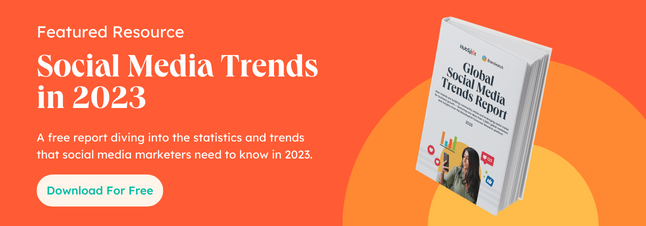When it comes to social media strategy, most brands know some of the top strategies: Post high-quality content, monitor your brand perception, engage with your audience.
But ever wonder if there are some strategies your social media team has been overlooking?
In this article, we'll cover some strategies you may not have considered, with some data to support their effectiveness.
1. Leverage small, nano, and micro-influencers.
A 2021 State of User Generated Content report revealed that most marketers (93%) agree that consumers trust content created by people way more than brands.
People trust each other considerably more than they trust brands, and that's why 75% of marketers are working with small to micro-influencers with followers ranging from 500 to 25,000, according to the study.
Why not mega influencers with millions of followers? Well, besides cost, some brands worry that as influencers become more celebrity-like and grow in popularity, they lose some of their influence – ironically enough.
As a result, brands are working more with small, blue-checkless content creators with great engagement and true influencers in their community. In 2018, an eMarketer study revealed that micro-influencers (between 10K-100K followers) were considered most effective.
User-generated content (UGC) will continue to be a great lead and revenue driver on social media. However, the shift toward smaller influencers may be the more effective (and affordable) way to increase brand awareness.
2. Stick to platform-specific content.
With so many different platforms to post on, it's very easy to get overwhelmed.
Brands often try to batch-post their content by posting the same content on multiple platforms at once. For instance, the same video may go on Facebook, Instagram Reels, and TikTok.
While it may be a time-saver, it may hurt your brand in the long run. The competition between each social media platform is fiercer than ever before.
In Feb. 2021, Instagram announced it would deprioritize Reels with the TikTok trademark in it.
The trademark shows up when a TikTok user saves a video that was uploaded to the platform. Because TikTok is a direct competitor to Instagram Reels, the brand wants to promote the use of its own short-form software and keep users on its network.
This speaks to a larger effort from social media platforms to differentiate themselves from one another. In that same spirit, brands should follow a specific strategy for each platform, as consumer behavior differs from one site to the next.
3. Show the people behind your brand.
When I went on vacation a few weeks ago, my friends and I spent an hour discussing our favorite Black-owned brands, as Black women do.
One brand I highlighted was the luxury purse brand Anima Iris. I hadn't even purchased from the brand but I was already loyal and I was eager to spread the word.
A few weeks later, I noticed that one of my friends kept sharing new content from Anima Iris with me. I mentioned that I loved how invested she became in the brand.
She responded, "It's because I'm invested in her." The "her" she was referring to is the company's CEO, Wilglory Tanjong, who was incredibly visible on the brand's social media.
In fact, the majority of the brand's social media posts feature the CEO and her journey. Tanjong shares everything from new leathers she's considering using to her struggle in raising capital.
What's the point of the story? Well, brands often underestimate the power of transparency.
Back in 2018, a Sprout Social study revealed that 70% of consumers feel more connected to a brand when its CEO is active on social. They listed three reasons why:
- It feels like there are real people behind the brand.
- Consumers like learning about the leadership team.
- Consumers feel the CEO offers valuable insight into the brand itself.
This transparency has helped Tanjong build a community of loyal followers who are invested in her brand and engage frequently with her content.
Marketers often think of data privacy and social responsibility. But it's also company culture, employees, processes, and everything in between.
In a 2020 study by Havas, consumers shared that they (58%) want brands to be more transparent and honest and their company, including their processes and products.
Transparency builds trust and allows you to speak directly with your audience. What's better than that?
4. Focus on community, not promotion.
Social media builds brand awareness, true. However, too often, brands focus on output without considering community building.
Annabelle Nyst, senior content strategist on the HubSpot social team, encourages companies to create a community-focused social strategy.
"So many brands see social media as a vessel for promoting themselves and their owned content, without really giving too much thought to engaging or growing their community," said Nyst.
She adds that brands should be proactive about participating in conversations, finding their facts, monitoring their brand perception, and celebrating UGC.
Takeaway: Get your audience invested in your brand and you'll have an easier time getting them excited about your products or services.
5. Go live.
Live streaming allows brands to connect with their audience in real-time. In some instances, consumers prefer it over other content channels.
Back in 2017, Livestream found that 80% of consumers prefer watching a brand's live video than read a blog post or see a social post.
In 2021, 28% of marketers planned to use it in their video marketing strategy, according to Wyzowl.
Other reasons to go live include:
- The ability to repurpose the live content into other posts.
- The ideas you get generate from connecting directly with your audience.
- The trust you can build by showing the faces behind your brand.
Social media is a beast that isn't going anywhere anytime soon. Don't be afraid to experiment, as that will help you better understand your audience and identify effective strategies.
from Marketing https://ift.tt/30szh88digital marketing agency
![Download Now: Social Media Trends in 2021 [Free Report]](https://no-cache.hubspot.com/cta/default/53/3dc1dfd9-2cb4-4498-8c57-19dbb5671820.png)








